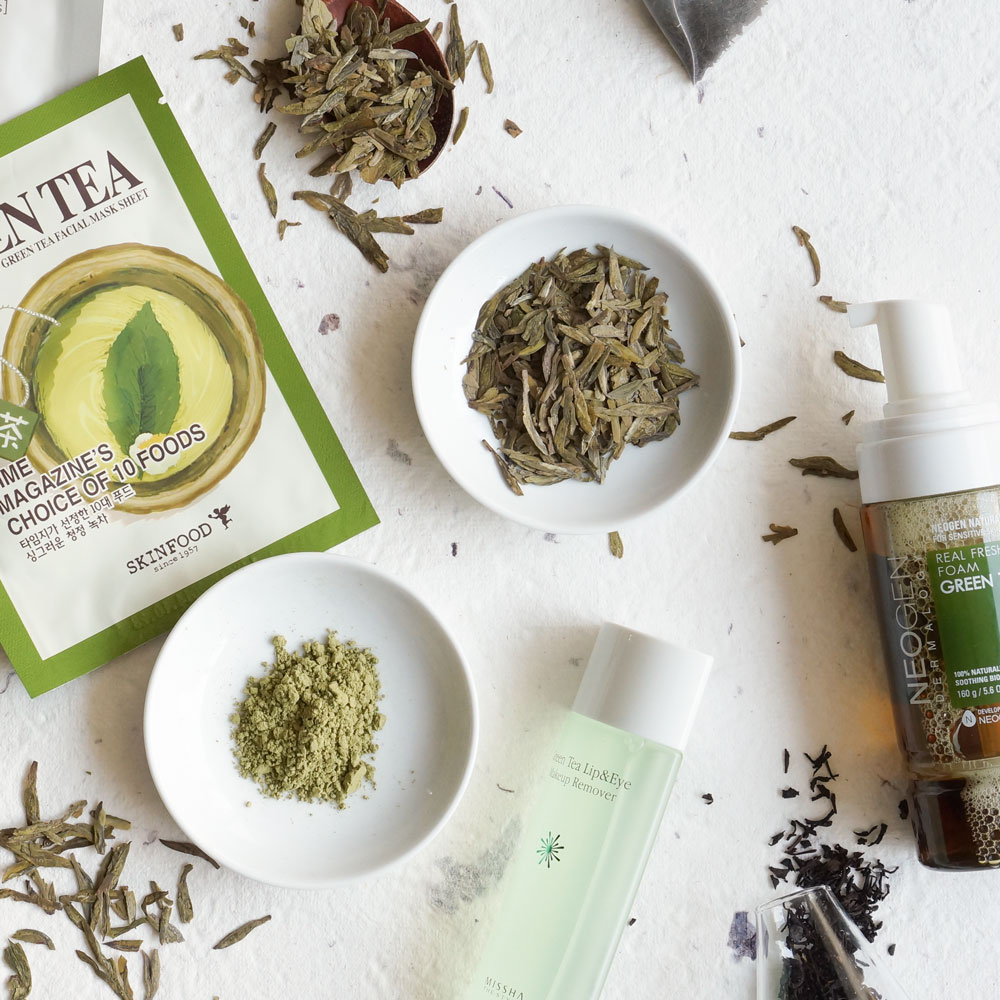Green tea has gained fame in skin care for being both effective against acne and a powerful antioxidant. On top of all this, it’s an anti-aging and soothing ingredient. If you think this sounds just too good to be true, read on to see what the available research and scientific studies have to say about this ingredient—and if they match up with all the marketing behind green tea as a skin care ingredient!
This is what science has to say about green tea:
As a Powerful Antioxidant and Anti-Aging Ingredient
Naturally occurring chemicals like polyphenols and caffeine are what give green tea its skin benefits and antioxidant power.
As you already know, antioxidants protect the skin from damage caused by free radicals. In the case of green tea extract (often listed in skin products’ as camellia sinensis leaf extract), the concentration of these powerful players is even higher. Green tea per se is already a rich source of Epigallocatechin Gallate, or EGCG, widely regarded as one of the most powerful antioxidants available.
Now, let’s talk about green tea extracts, woo! Green tea in skin care protects our largest organ from harmful UV rays that encourage premature aging and hyper-pigmentation.
The best way to use green tea, based on the research, is to apply it before sun exposure. Multiple studies have found that EGCG helped reduce the amount of redness and sunburn seen after UVB exposure (which doesn’t mean “before hitting the pool” or “before going to the beach,” ok? Remember: Is there a window next to you? You’re already exposed to UVA and UVB rays).
It also helped protect the skin’s DNA from damage, and reduced the immune suppression that sun exposure causes.
Does this mean green tea can replace a sunscreen? No! Green tea isn’t a sunscreen, even though it can sunburn. Sunscreens reduce the amount of UV that reaches our skin, green tea and its extracts don’t do that. Instead, they can help mop up some of the damage that is caused when that UV does reach the skin – but not all of it. Used together they may offer more complete protection from the damaging effects of the sun.
For Treating Acne
While there isn’t too much research to back up its use for acne, the small amount of early research is positive. One of them indicates that skin care products containing ECGG were crucial in decreasing acne by 80 to 90 percent over eight weeks with daily application.
Is important to remember that green tea is also known for its anti-bacterial activity plus, it fights against skin inflammation, which makes it a great ingredient to soothe the skin, treat breakouts, and fade acne scars.
